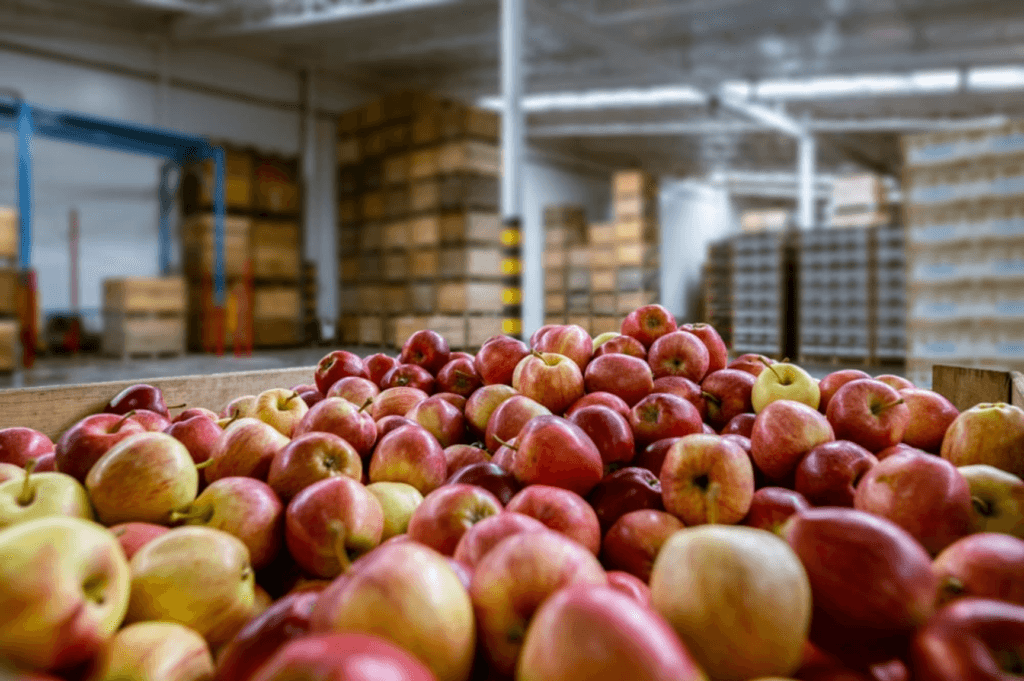Food Grade Warehousing Services for Safe and Compliant Storage
Find the Perfect Food Grade Warehouse with OLIMP – Safe, Certified, and Hassle-Free
Looking for a reliable food storage warehouse? OLIMP takes the stress out of the search. Whether you need ambient, refrigerated, or frozen storage, we connect you with certified food-grade facilities across North America—so your products stay fresh, safe, and in top condition.
All warehouses on the OLIMP platform meet strict federal, state, and local regulations. They’re regularly inspected and certified by top food safety organizations like the Safe Quality Food Institute (SQF) and ASI Food Safety. Every facility is FDA-registered, so you can feel confident knowing your products are handled with care and meet all compliance standards.
With OLIMP, it’s easy to find a food storage solution that fits your needs—fast. Skip the guesswork and keep your inventory safe with trusted, verified warehousing options.
Thousands of warehouses throughout the US, Canada, Mexico, etc
OLIMP offers specialized food-grade warehousing for dry, frozen, and cold storage.
Storage and handling of food products in a facility that meets strict hygiene and safety standards
6 Essential Factors for Choosing a Food-Grade Warehouse
Finding the right food-grade warehouse is vital for ensuring the safety, quality, and compliance of your products. Storing and distributing food comes with unique challenges, as different food types require specialized handling at every stage of their lifecycle. From shipping to storage and delivery, each step is crucial to maintaining food quality.
Here’s a quick guide to six key factors to consider when choosing a food-grade warehouse:
- Certifications Matter: Look for warehouses that comply with strict food safety standards and hold certifications such as FDA approval or Safe Quality Food (SQF). These certifications ensure the facility uses modern techniques to keep your products safe and in compliance with regulations.
- Location is Key: A strategically located warehouse can reduce transit times and costs. Proximity to distribution hubs or final destinations ensures fresher products, minimizes spoilage risks, and enhances supply chain efficiency.
- Strong Facility Management: Choose a warehouse with a proven ability to handle complex logistics and meet tight deadlines. Efficient management ensures your operations run smoothly and reduces potential delays in your supply chain.
- Clean and Well-Maintained Facilities: Inspect the warehouse to ensure it meets high standards for cleanliness, pest control, and sanitation. Proper maintenance is essential to prevent contamination or spoilage, safeguarding the quality of your products.
- Check Reputation and Track Record: Research the company’s history by reading reviews, testimonials, and recommendations. A warehouse with a solid reputation for reliability and excellent service can provide peace of mind and better outcomes.
- All-in-One Supply Chain Solutions: Opt for a warehouse that offers complete supply chain management services. Consolidating shipping, storage, and distribution in one facility saves time, cuts costs, and ensures a seamless operation.

Different Types of Food Products and Their Storage Needs
Food-grade warehouses are specialized to meet the diverse storage needs of various food products. Here’s a closer look at the different types:
- Dry Storage Warehouse: Suited for non-perishable goods such as canned foods and grains, dry storage warehouses maintain a stable, climate-controlled environment without temperature regulation, preserving the quality and longevity of the products.
- Frozen Food Storage Warehouses:These facilities keep temperatures well below freezing to safely store items like frozen fruits, vegetables, and ready-made meals. This prevents thawing and preserves quality until the products are ready for distribution.
- Cold storage: Ideal for products that need to be kept cool but not frozen, cold storage facilities help extend the freshness and shelf life of perishable items like certain produce and dairy products, minimizing spoilage and waste.
At OLIMP, our food-grade warehousing solutions are designed to address the specific needs of dry, frozen, and cold storage, ensuring that each type of food product is stored under optimal conditions.

Ready to Optimize Your Food Storage & Shipping?
Partner with OLIMP—the trusted leader in food-grade warehousing and distribution. Our experts are here to design a storage solution that keeps your products fresh, compliant, and market-ready. Contact us today to discuss your needs, or request a quote to get started!

Frequently Asked Questions (FAQ) – OLIMP Warehousing
Q: What certifications should a food storage warehouse have?
Most compliant food warehouses operate under standards such as:
- FDA / FSMA compliance
- HACCP programs
- GMP sanitation procedures
- BRC, SQF, or FSSC 22000 (common retailer requirements)
These certifications confirm proper hygiene, traceability, and temperature control processes.
Q: What temperature should food be stored at in a warehouse?
Typical storage ranges:
- Frozen foods: 0°F (-18°C) or lower
- Refrigerated foods: 34-39°F (1-4°C)
- Dry goods: 50-70°F (10-21°C)
Temperature is continuously monitored to prevent spoilage and bacteria growth.
Q: How does a warehouse prevent food contamination?
Food-grade facilities prevent contamination by:
- Separate zones for allergens and product types
- Scheduled sanitation procedures
- Pest-control programs
- Sealed handling equipment
- Employee hygiene protocols
These practices are part of Good Manufacturing Practices (GMP)
Q: How is product expiration managed in a food warehouse?
Facilities use inventory rotation systems such as:
- FIFO (First-In-First-Out)
- FEFO (First-Expire-First-Out)
- Lot and batch traceability
These ensure older inventory ships first and reduces waste or recalls.
Q: How often are storage conditions monitored?
Food warehouses continuously monitor environmental conditions – often hourly or in real time — with alarms and reporting systems to protect inventory from temperature or humidity deviations.
Q: What humidity levels are safe for dry food storage?
Dry food storage areas should maintain low humidity – typically below 15% – to prevent mold, moisture damage, and spoilage.
Q: Do food warehouses reduce spoilage and waste?
Yes, proper temperature control, monitoring, and rotation systems significantly reduce spoilage and protect inventory value.
Ready to streamline your warehousing needs?
Request a quote today and discover how OLIMP's tailored solutions can optimize your operations